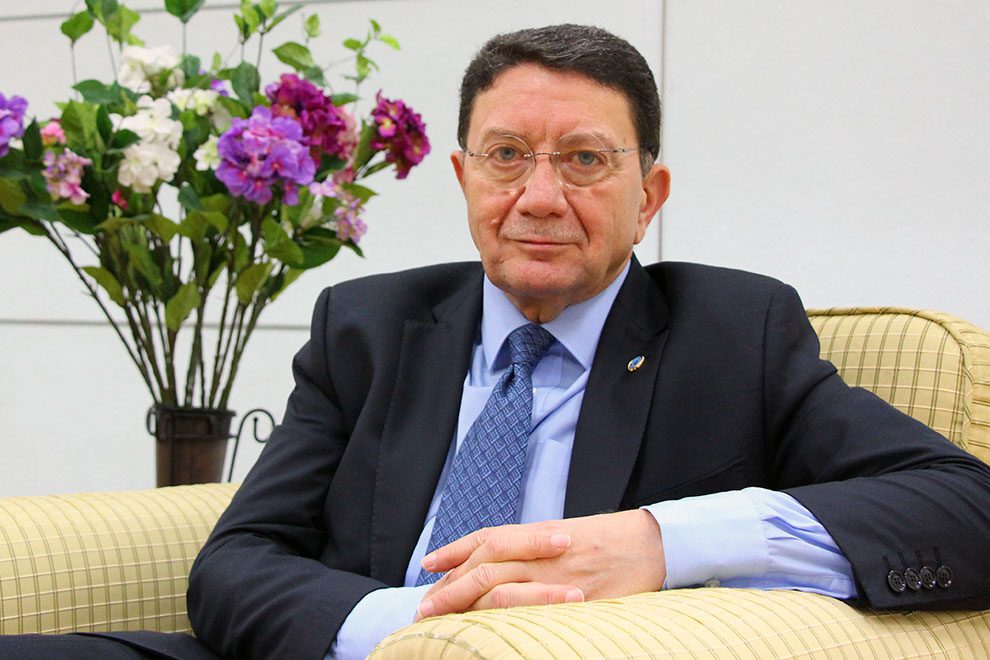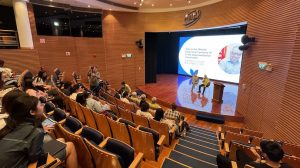World Tourism Organization (UNWTO) Secretary General Dr. Taleb Rifai is full of praise for the partnership forged by the UNWTO and IFT. In this interview, Dr. Rifai highlights the Institute’s readiness to support UNWTO education initiatives in the Asia-Pacific region
– Your tenure as Secretary General ends at the end of the year. Looking back, how do you view your 8 years at the helm of the UNWTO?
These were wonderful years. They were very challenging because when I first started as UNWTO Secretary General in 2009-2010, it was at the peak of the economic crisis. There were many challenges facing us. But these years as UNWTO Secretary General were, without doubt, some of the most rewarding years of my life. I look at them with great satisfaction and I leave with a great feeling of accomplishment.
– Tourism has changed a lot since you took office ad interim in 2009 and then formally in 2010. What are the biggest changes that you have seen?
Tourism wasn’t taken as seriously as it is now. For many reasons, there was a lack of public awareness. But the effectiveness of tourism has also changed tremendously in the past 8 years. It was the growth and the power of the industry, and our ability to raise awareness as well, that combined and resulted in a situation where, now, people are more aware of the importance of tourism and they take it more seriously.
“These years as UNWTO Secretary General were, without doubt, some of the most rewarding years of my life”
– What were the main challenges you faced as UNTWO Secretary General?
There were 2 major challenges: awareness and sustainability. The first was awareness and consciousness about the importance of tourism. You cannot really promote a sector when it is not appreciated or understood. Therefore, one of the major challenges was to raise awareness of the importance of tourism and what it really is. The second challenge is that the tremendous growth [of tourism] has been so overwhelming that society has been unable to come to terms with it. Hence the challenge of sustainability became very serious.
– During your tenure, there was a strengthening of relations between IFT and the UNWTO. How do you assess that partnership?
I always take pride in what IFT has achieved during this period, for 2 reasons. First, it is an excellent institution. Second, it’s in Macao, a destination that is a success story and from which a lot of lessons can be learned. The fact that this institution is based in Macao gave it a different dimension altogether. Add in, too, the fact that it is run and managed in a very professional way. We found it to be a very good ally for UNWTO. That’s why we now use IFT to train many people in Asia. Any time I thought of doing a course in Asia, I would first call IFT and ask them for help. In 99 percent of the cases, they would say, “Yes, of course we can help.” We are proud of the relationship that we have with it.
– The UNWTO and IFT are now training officials in the Asia-Pacific region in matters to do with tourism at the IFT Global Centre for Tourism Education and Training. What impact can these courses have in promoting sustainable tourism in the region?
Raising the level of experience and competence of public officials was and continues to be a major challenge. Not every country in the world can have people educated in advance for these positions. Some countries need to train them on the job. Therefore, we use IFT to respond to requests from UNWTO member-states in the region to train their public officials in particular areas. Training public officials is different from training people who are actually going to work in the industry. That’s why I am very happy that IFT developed know-how and expertise in training public officials, which goes beyond the content of the courses. We think we have managed to forge a very good partnership with IFT.
“We are proud of the relationship that we have with IFT”
– What advice would you give to IFT students aiming to enter the tourism industry?
Anybody that works in the tourism industry must realise that they are not going to work in a limited and confined sector. Working in tourism is a far wider and bigger responsibility than people think it is. It’s not just another job. Students should be preparing themselves to change the world around them. People in the travel and tourism industry need to think beyond the limits of their job, think of how they are going to positively impact things around them, instead of only aiming for a good position and good pay. That is something they are going to get anyhow.









